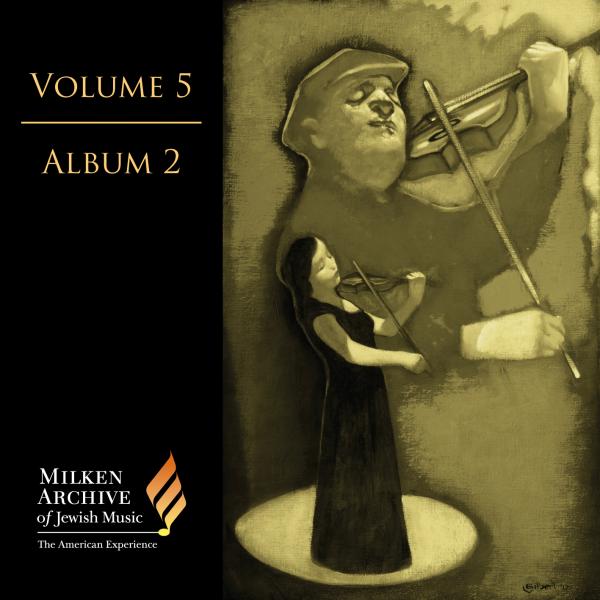Tracks
Liner Notes
These short “encore” pieces began their unorchestrated concert lives as folksong and folk dance arrangements, based on authentic Jewish folk material culled from throughout the Pale of Settlement of the czarist empire and later reworked in their present form during Weinberg’s (and possibly Simeon Bellison’s) American years. Though Weinberg became a sophisticated and prolific composer of sacred as well as Jewish-related secular art music, his initial introduction to Jewish music of any kind was via just such folk music.
However, like most of his bourgeois, urbanized, and classically oriented colleagues and fellow composers associated with the Gesellschaft für jüdische Volksmusik (Society for Jewish Folk Music), Weinberg did not come to these folk idioms firsthand. Rather, he encountered these genres from an intellectual perspective and an academic vantage point during his Moscow years. This exposure and interest also predated his years in Palestine, where his focus shifted from European to Near Eastern melos, and where, even though much Hebrew Palestinian song was based on Russian melodic elements, these particular idioms “of the Pale” were far removed from the “new” musical direction and aura associated with the forward-looking Zionist cultural ideals. Indeed, Weinberg’s inspiration to create such pieces is testament to the mission as well as the influence of the Gesellschaft and its orientations.
Canzonetta—from a set of pieces entitled Bobe mayses (Old Wives’ Tales)—and The Maypole were both arranged originally for clarinet and piano by the renowned clarinetist Simeon Bellison, who was prominent in the Jewish national art music movement in Russia even after the Bolshevik Revolution and who later was first clarinetist in the New York Philharmonic for twenty-eight years. Weinberg subsequently created these orchestral versions in the United States, presumably for Bellison to perform.
Canzonetta has transparent echoes of both an old Yiddish folk tune and a Hassidic melody, cleverly yet simply developed and intertwined without masking their identities.
The Maypole title is strange for a piece of eastern European Jewish connection, since the Maypole connotes the original English and European May Day ceremony welcoming the spring, with its traditional dances around the Maypole drawn from earlier pagan rituals. It is possible that this piece was intended to refract the Maypole dances through a Jewish sonic prism, alternating a sprightly springlike tune with a meditative clarinet passage that could conceivably portray the stately dance connected with the crowning of the May Queen.
Alternatively, one might be tempted to draw some parallel to May Day’s late role as a rallying occasion for the international labor movement and then the communist world—except that the politically oriented May Day holiday originated in America and the Maypole was not part of its ceremonies. Nor is the musical idiom or character of this piece in any way connected to songs of the Bundists or to the Jewish Labor Movement in the czarist empire (nor were Weinberg or his middle-class circle).
Both pieces are permeated with some of the prominent clarinet idioms associated with 19th-century eastern European klezmer practice, which are heavily dependent on the specialized skill of the soloist. The melodic features, however, are more related to Hassidic song and dance than to the repertoire of klezmer bands. These are miniatures—not truly representative of Weinberg, who wrote so many large-scale sacred and secular works. In fact, they are not even listed in his published catalogue, and were found only in manuscript in the Bellison collection in Israel. They are nonetheless charming and well-crafted pieces, eminently suited for encore performances.
Credits
Composer: Jacob WeinbergPerformers: David Krakauer, Clarinet; Rundfunk-Sinfonieorchester Berlin, Rundfunk-Sinfonieorchester Berlin; Gerard Schwarz, Conductor
Publisher: Southern Music Publishing Co., Inc.




